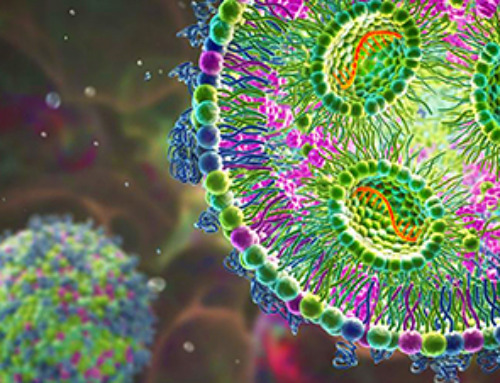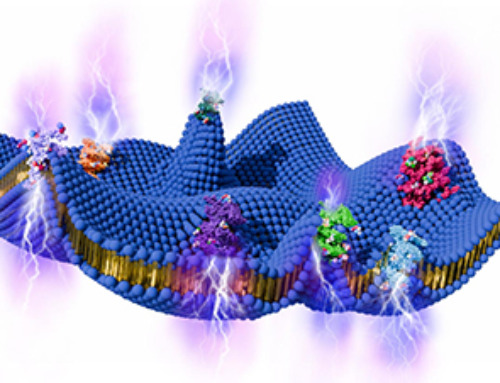Fungicides used in agriculture have been linked to an increase in resistance to antifungal drugs in both humans and animals.
Fungal infections are on the rise, and two UC Davis infectious disease experts, Dr. George Thompson and Dr. Angel Desai, are sounding the alarm. In a recent commentary published in the New England Journal of Medicine, they warn that new agricultural pesticides designed to kill harmful fungi might be making it harder to treat dangerous fungal infections in people and animals.
Fungi already cause serious health and economic problems around the world. While antifungal agents are essential tools in both medicine and agriculture, overuse or poorly coordinated development of these compounds could lead to fungi evolving resistance. This means that life-saving treatments for humans might stop working.
Thompson and Desai are urging the global community to adopt a “One Health” approach to developing, testing and using agents to fight pathogens like fungi and bacteria.
“Antimicrobial resistant pathogens are a constant reminder for us to use agents judiciously,” Thompson said. “We have learned that the widespread use of antibiotics for livestock resulted in the rapid development of resistance to antibacterials. We have similar concerns regarding the use of antifungals in the environment.”
Thompson is the article’s lead author. He is a professor at the UC Davis School of Medicine in the Department of Internal Medicine, Division of Infectious Diseases, and the Department of Medical Microbiology and Immunology.
A One Health approach proposes a more holistic view to health. It emphasizes how changes in one area — like human activity, animal health, or the environment — can have ripple effects across all three.
About antifungal resistance
Changes in the climate and the wind patterns can help spread pathogens like fungi. Also, human travelers, migrating animals, and the movement of contaminated items can carry pathogens to new areas.
In the last few decades, there has been a rapid increase in fungus types that cause severe infections in humans. One example of a difficult-to-treat fungus is Candida auris (C. auris).
“Fungi have similar cellular machinery to that of humans. This is why medications that kill fungi like C. auris often have side effects for people. With few antifungals to choose from during clinical care, preventing resistance is of paramount importance,” Thompson explained.
Coordinated pesticide development and use
Resistance to treatments is highly linked to the amount of each agent used, the authors wrote. They called for coordinated global regulation to slow the development of resistance to new antimicrobial agents.
“There is a need for a shared antimicrobial approval process that includes a thorough assessment of potential impacts on the environment and human and animal health. This is especially true before any new large-scale environmental and agricultural pesticide use,” Desai said. She is an associate professor in the Department of Internal Medicine.
Their report also noted the foundation of The Interagency Drug and Pesticide Resistance and Efficacy Workgroup, a new entity under The U.S. Environmental Protection Agency. It is tasked with providing input on upcoming compounds proposed for registration, including potential effects on medical practice. The authors said similar efforts are needed on a global scale.
They noted that shared decision-making among national and global regulatory agencies would be cost-effective. It might help avoid the more expensive and riskier prospects of the rapid spread of resistant pathogens.
Reference: “Addressing Antifungal Drug Resistance — A “One Health–One World” Challenge” by George R. ThompsonIII and Angel N. Desai, 11 June 2025, New England Journal of Medicine.
DOI: 10.1056/NEJMp2416548
News
Nanomedicine in 2026: Experts Predict the Year Ahead
Progress in nanomedicine is almost as fast as the science is small. Over the last year, we've seen an abundance of headlines covering medical R&D at the nanoscale: polymer-coated nanoparticles targeting ovarian cancer, Albumin recruiting nanoparticles for [...]
Lipid nanoparticles could unlock access for millions of autoimmune patients
Capstan Therapeutics scientists demonstrate that lipid nanoparticles can engineer CAR T cells within the body without laboratory cell manufacturing and ex vivo expansion. The method using targeted lipid nanoparticles (tLNPs) is designed to deliver [...]
The Brain’s Strange Way of Computing Could Explain Consciousness
Consciousness may emerge not from code, but from the way living brains physically compute. Discussions about consciousness often stall between two deeply rooted viewpoints. One is computational functionalism, which holds that cognition can be [...]
First breathing ‘lung-on-chip’ developed using genetically identical cells
Researchers at the Francis Crick Institute and AlveoliX have developed the first human lung-on-chip model using stem cells taken from only one person. These chips simulate breathing motions and lung disease in an individual, [...]
Cell Membranes May Act Like Tiny Power Generators
Living cells may generate electricity through the natural motion of their membranes. These fast electrical signals could play a role in how cells communicate and sense their surroundings. Scientists have proposed a new theoretical [...]
This Viral RNA Structure Could Lead to a Universal Antiviral Drug
Researchers identify a shared RNA-protein interaction that could lead to broad-spectrum antiviral treatments for enteroviruses. A new study from the University of Maryland, Baltimore County (UMBC), published in Nature Communications, explains how enteroviruses begin reproducing [...]
New study suggests a way to rejuvenate the immune system
Stimulating the liver to produce some of the signals of the thymus can reverse age-related declines in T-cell populations and enhance response to vaccination. As people age, their immune system function declines. T cell [...]
Nerve Damage Can Disrupt Immunity Across the Entire Body
A single nerve injury can quietly reshape the immune system across the entire body. Preclinical research from McGill University suggests that nerve injuries may lead to long-lasting changes in the immune system, and these [...]
Fake Science Is Growing Faster Than Legitimate Research, New Study Warns
New research reveals organized networks linking paper mills, intermediaries, and compromised academic journals Organized scientific fraud is becoming increasingly common, ranging from fabricated research to the buying and selling of authorship and citations, according [...]
Scientists Unlock a New Way to Hear the Brain’s Hidden Language
Scientists can finally hear the brain’s quietest messages—unlocking the hidden code behind how neurons think, decide, and remember. Scientists have created a new protein that can capture the incoming chemical signals received by brain [...]
Does being infected or vaccinated first influence COVID-19 immunity?
A new study analyzing the immune response to COVID-19 in a Catalan cohort of health workers sheds light on an important question: does it matter whether a person was first infected or first vaccinated? [...]
We May Never Know if AI Is Conscious, Says Cambridge Philosopher
As claims about conscious AI grow louder, a Cambridge philosopher argues that we lack the evidence to know whether machines can truly be conscious, let alone morally significant. A philosopher at the University of [...]
AI Helped Scientists Stop a Virus With One Tiny Change
Using AI, researchers identified one tiny molecular interaction that viruses need to infect cells. Disrupting it stopped the virus before infection could begin. Washington State University scientists have uncovered a method to interfere with a key [...]
Deadly Hospital Fungus May Finally Have a Weakness
A deadly, drug-resistant hospital fungus may finally have a weakness—and scientists think they’ve found it. Researchers have identified a genetic process that could open the door to new treatments for a dangerous fungal infection [...]
Fever-Proof Bird Flu Variant Could Fuel the Next Pandemic
Bird flu viruses present a significant risk to humans because they can continue replicating at temperatures higher than a typical fever. Fever is one of the body’s main tools for slowing or stopping viral [...]
What could the future of nanoscience look like?
Society has a lot to thank for nanoscience. From improved health monitoring to reducing the size of electronics, scientists’ ability to delve deeper and better understand chemistry at the nanoscale has opened up numerous [...]





















